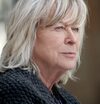Film screening Vision
Concert postponement
The Goethe-Institut Hanoi would like to inform you that to prevent risks related to the corona virus infection, the event „Film screening VISION“ on 27.03.2020 will be postponed. This event will be held at other appropriate times and we will notify you as soon as possible.
Content
At the age of eight, Hildegard was handed over by her parents to Disibodenberg Monastery. There she is brought up and instructed in medicine and herbal medicine. As her teacher dies, she teaches the new nuns in theology, medicine and botany. One day she confesses to the monk Volmar that she is experiencing religious visions; the latter immediately reports to the abbot, who finally informs the bishop of Mainz. A commission should then check the correctness of the visions, but refuses. Only the Pope personally can judge it. Hildegard then turns directly to Bernhard of Clairvaux, the most respected theologian of his time. He is pleased with her visions and receives confirmation from the Pope; From now on Hildegard can write down and publish her visions.
When Richardis, daughter of a nobleman, wants to enter the monastery, she is initially skeptical, but nevertheless accepts her because of her literary talent. Over time, a deep friendship develops between the two. When Hildegard decides to leave the monastery with her nuns and set up her own women's monastery, she meets the abbot's fierce resistance. Only when Richardis' mother, the Margravine of Stade, personally intervenes with the Archbishop of Mainz, is she finally granted permission. She founds a new monastery on Rupertsberg, of which she becomes abbess. Volmar, with whom she also maintains a close friendship, is given permission to become its provost. When Richardis is determined by her brother Hartwig, the archbishop of Bremen, to become the abbess of another monastery, Hildegard is deeply affected. After initial resistance, she finally complies with the order and Richardis leaves the monastery. A few months later, she learns that Richardis has died: she falls ill and into a coma. After a long recovery, she wakes up and decides to go on preaching trips with Volmar.
Margarethe von Trotta
After completing drama school and engagements on the various German theatre stages, Margarethe von Trotta was seen in many roles in New German Film from 1967, including films by Rainer Werner Fassbinder, Herbert Achternbusch and Volker Schlöndorff, with whom she also wrote and directed several films.
Her first independent work as film director was "The Second Awakening of Christa Klages" (1978). This was followed by controversial films such as “The Bleierne Zeit” (1981), “Rosa Luxemburg” (1986), “The Promise” (1995). Again and again in her films it is about reflecting on the past, individual as well as political and social, and attempting to critically examine it.
Barbara Sukowa
Like many stars born in the post-war period, Barbara Sukowa (*1950 in Bremen), celebrated her breakthrough with director Rainer Werner Fassbinder. As the muse of the filmmaker Margarethe von Trotta, she embodied the RAF terrorist Gudrun Ensslin in Die bleierne Zeit (1981), the German-Polish socialist of the same name in Rosa Luxemburg (1986), the philosophical theorist Hannah Arendt (2012) and in Vision – From The Life of Hildegard von Bingen (2009) even a saint. - But the triple mother and wife of multimedia artist Robert Longo had a second career in New York. As a singer in classical concerts as well as with her own rock band and flying visits to cool films like John Turturros Romance & Cigarette (2005), she says she finally learned "the smile" in the USA.
Program
| Date | Language | Subtitle |
| 09.03.2020, 7 PM | German | Vietnamese and English |
| 13.03.2020, 7 PM | German | Vietnamese |

